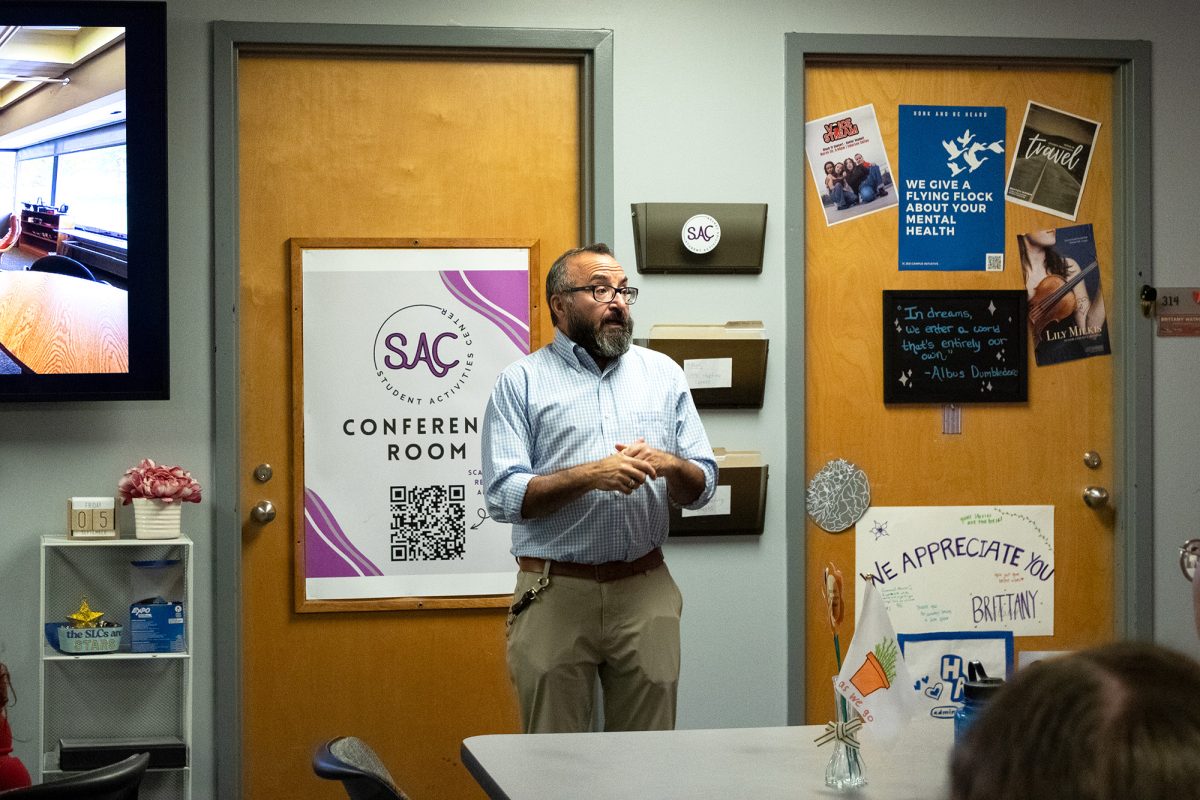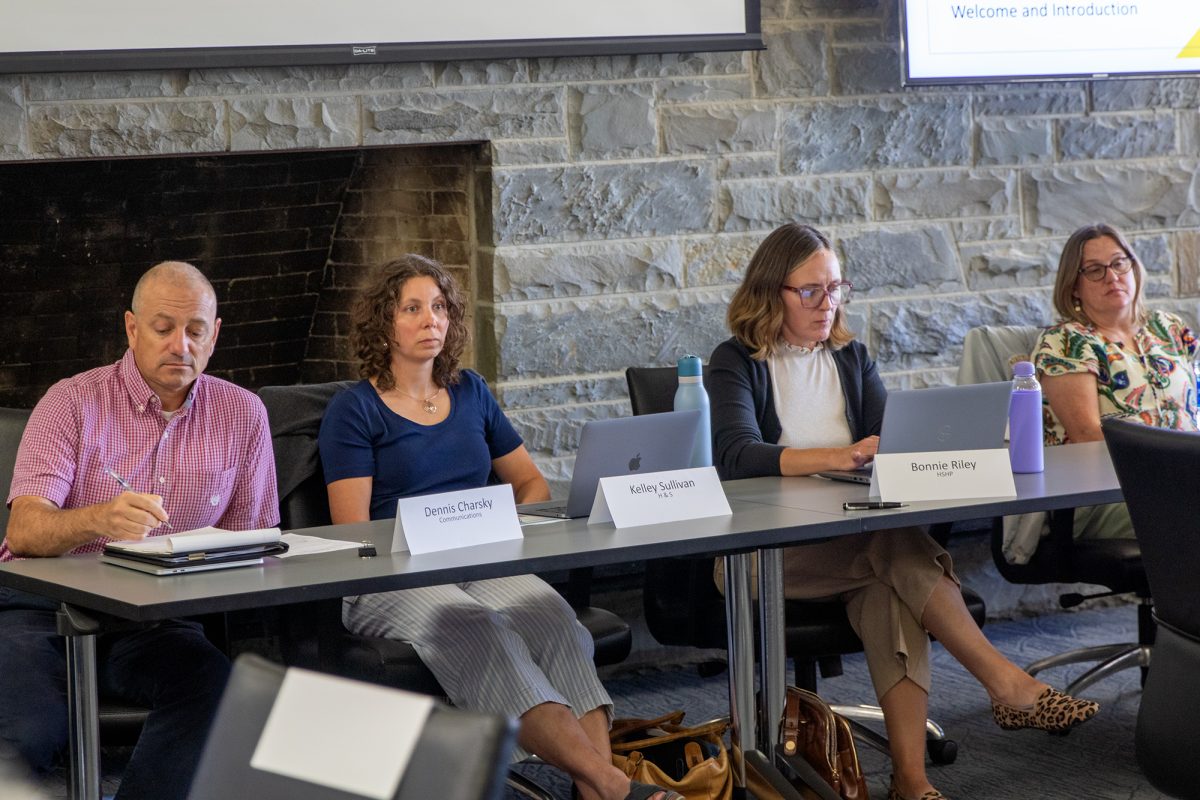The give-take, love-hate relationship between Tompkins County and its two largest employers, Cornell University and Ithaca College, was exemplified earlier this year in a Cornell study documenting the institution’s $3.3 billion impact on New York state in 2005.
The report highlighted Cornell’s contributions to the county’s economy, including the 13,000 residents they employed, the $74 million its students spent off campus and the $40 million visitors to the university spent that year.
But for some politicians, those economic stimuli do not make up for millions of dollars in revenue lost by local communities because of the tax-exempt status of Cornell and
the college.
“[Ithaca College] could make voluntary contributions that are in some way commensurate with the burden they place on the community, but they have been always very resistant to doing that,” said Tim Joseph, chairman of the Tompkins County Legislature.
Cornell’s report outlined the nearly $5 million in direct donations the university made to local public organizations in 2005 to fund infrastructure, education and development projects.
While no comparable study has examined the college’s economic impact on the region, the institution’s dependency on tuition makes it more difficult to contribute to the county in the same way as its East Hill counterpart.
Tuition and fees paid by students account for 27 percent of Cornell’s operating budget, but more than 90 percent of the college’s operating expenditures come from student payments, said Carl Sgrecci, vice president of finance and administration. He said the board of trustees would have to reallocate funds from the budget or raise tuition in order to directly contribute more money to local organizations.
Of the $5 million Cornell donated to local organizations in 2005, $3 million went to the Tompkins Consolidated Area Transit (TCAT), $1.25 million went to the city for municipal services and development and $425,000 went to the local school district.
“There’s a natural logic for the university contributing back to the city some set of resources to offset the cost to providing those services to the university,” said Stephen Golding, vice president of finance and administration at Cornell.
While giving money to the city and school district is a welcomed effort, Joseph said Cornell should not be allowed to count the $3 million given to TCAT as a voluntary payment because its students and employees make up such a large percentage of riders.
“[Paying for local schools and municipal services] … are good things for [Cornell] to do, but I don’t think it comes close to the burden placed into the community by being here, so I wouldn’t say it’s enough,” he said. “On the other hand, IC doesn’t do anything, so it’s more than that.”
But Sgrecci said the college has gone out of its way to give back to the community.
While most of the college’s property is tax-exempt, it paid nearly $450,000 to the town, city and county during the 2005–06 fiscal year.
Those payments included $173,900 in local school taxes for the Circle Apartments purchased by the college in 2002. Sgrecci said the college could have designated the land tax-exempt, but didn’t want to take that source of revenue away from the school district.
When the college refinanced its bond investments in 2004, it chose to work with the local industrial development agency so payments would go back into the local economy, Sgrecci said. Over the next few years, the college will pay $365,000 to Tompkins County Area Development (TCAD), which runs the local IDA.
The TCAD uses donations to finance economic development projects throughout the county, but none of those plans include the college building an Ithaca College facility downtown. Cornell and Tompkins County Community College (TC3) have off-campus buildings near The Commons.
In July 2005, Cornell opened Seneca Place, a $30 million building containing offices and a hotel, adjacent to The Commons. In November, TC3 opened a new center downtown, where more than 650 students take classes.
“We have talked about this at various times over the years, but at present we don’t have any plans for downtown facilities,” Sgrecci said. “We feel we have a lot right here on campus that needs our attention, like the business school, Gateway Building, Athletics and Events Center, as well as a number of building renovations that will follow those projects.”
Michael Stamm, president of TCAD, said the college shouldn’t build a facility downtown just to please the community.
“It really has to make good business sense from IC’s point of view,” he said. “It can’t be considered a charitable contribution to the community to have a physical presence downtown.”
Jean McPheeters, president of the Tompkins County Chamber of Commerce, said schools like Ithaca College and Cornell need to make financial decisions based on their institutional missions.
“The role of not-for-profits is enormously important,” McPheeters said. “The question, I think, for an organization is, How do they assess their mission versus fulfilling their role in a particular community? I think that that’s the responsibility of the board and the administration [to answer].”
Don Lifton, a former county legislator and Cornell University trustee, wrote in a column in The Ithaca Journal yesterday that Cornell should give more payments to the local government.
The Cornell administration “has an ethical corporate financial responsibility to Tompkins County residents despite the legal shelter of property tax exemption,” Lifton wrote. “Dramatically increased property tax payments are a fine place to begin.”
Both Cornell and the college should pay for the services members of their communities use, Joseph said, like infrastructure, law enforcement and medical care.
Joseph said if the state wants to subsidize colleges and universities, they should pay property taxes to the local municipalities. Or, he said, the college should make payments in lieu of taxes to the town, city and county governments — even if that means getting the money from students.
“You are living in this community, you are using the services and you should make a contribution,” Joseph said. “If it comes through your tuition, then so be it.”







